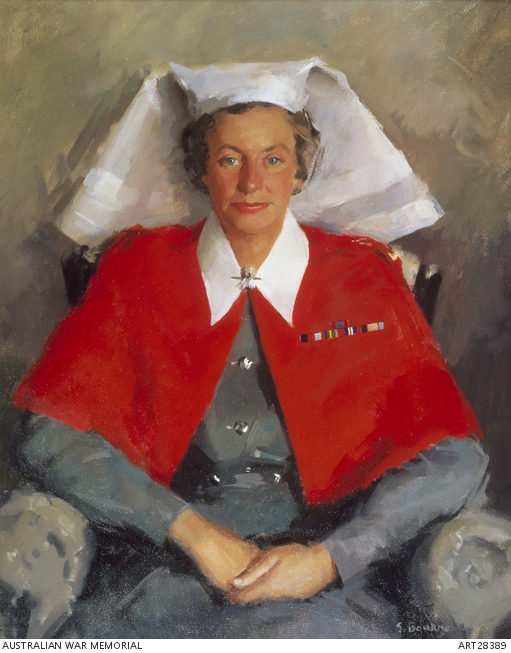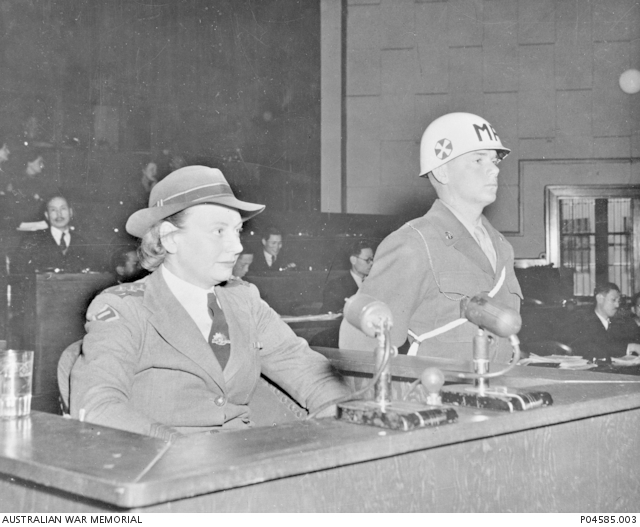As Australia and New Zealand mark ANZAC Day, InSight+ remembers the fate of the Australian nurses who died in the 1942 Bangka Island massacre.
Twenty-two unarmed Australian nurses were killed in the Bangka Island (an island east of Sumatra) massacre on 16 February 1942, shortly after the outbreak of war in the Pacific.
Vivian Bullwinkel, a then-Lieutenant from South Australia, was the only Australian nurse to survive.
In the lead-up to ANZAC Day 2023, the Australian College of Nursing (ACN) is paying tribute to Vivian Bullwinkel, who retired from the Australian Army as a Lieutenant Colonel in 1947.
“Lieutenant Colonel Vivian Bullwinkel was a giant of change and transformation for our profession,” ACN CEO Adjunct Professor Kylie Ward told InSight+.
“She was also a formidable Australian hero whose name and face should be known by all.
“And yet we don’t.”

As the only Australian nurse who survived the massacre, Lieutenant Bullwinkel overcame the atrocities of war with heroism, strength and tenacity.
She also showed an incredible commitment to caring for the sick and wounded.
To commemorate her extraordinary service, her sculpture will be unveiled in the grounds of the Australian War Memorial in Canberra in August 2023.
It’s the first to commemorate the service of an individual woman or nurse at the Memorial’s grounds.
Who was Vivian Bullwinkel?
Vivian Bullwinkel was born in 1915 in Kapunda, South Australia. She trained as a nurse in Broken Hill and worked in Hamilton, Victoria, and the Jessie McPherson Hospital in Melbourne.
In 1941, she joined the Australian Army Nursing Service and sailed for Singapore later that year.
In 1942, when Japanese troops invaded Singapore, then-Lieutenant Bullwinkel and 65 other nurses boarded the SS Vyner Brooke to escape.
Two days later, the Japanese sunk the ship and then-Lieutenant Bullwinkel, 21 other nurses and others from the ship, made it ashore to Bangka Island off the coast of Indonesia.
They met up with a group of British soldiers and surrendered to the Japanese.
“The Japanese took out tommyguns, set up a machine gun and ordered us into the sea,” Bullwinkel told The Age in 1945, after the war.
“There was no mistaking their vicious intentions, so we ran madly into the waves.
“As we were thigh deep in the surf they opened murderous fire, mowing us down like a scene I saw in a film as a child. Women around me shrieked, stiffened and sank.
“I was hit in the left side, and fell unconscious in the water. I can’t swim a stroke, but somehow I felt my body being washed about in the waves. I lost consciousness, recovered it, but, lost it again, I was never clear what was happening, but a number of times I felt I was being washed towards the beach.”
All the nurses died, except then-Lieutenant Bullwinkel.
She was struck by a bullet but pretended to be dead until the Japanese left. She was able to drag herself into the jungle where she hid for 12 days, nursing a wounded British soldier.
She eventually walked into a local town, surrendering to the Japanese.
She spent three and a half years in a Japanese prisoner of war camp until the war ended.
“After her horrendous and long ordeal, no one would have blamed her if she wanted to live out her life quietly. But not Vivian,” Adjunct Professor Ward explained.
She came home to have a pioneering career in nursing; her work and dedication live on in the profession today.
Vivian Bullwinkel’s trailblazing career
Bullwinkel became the keeper of the knowledge of the Bangka Island massacre.
“She testified at both the Australian War Crimes Board of Inquiry in 1945 and bravely gave harrowing evidence at the Tokyo War Crimes Tribunal at the International Military Tribunal for the Far East in 1946,” Adjunct Professor Ward told InSight+.

She became the Matron of (the then) Fairfield Infectious Diseases Hospital in Melbourne.
She established the Australian Nurses Memorial Centre (ANMC) with Betty Jeffrey and Beryl Woodbridge, and she advocated for better education and conditions for nurses everywhere.
She was also President of the Royal College of Nursing, Australia, and was the first female member of the Council of the Australian War Memorial.
She certainly made an impression.
“I have spoken to several doctors and paramedics who remembered meeting here (sic) in their early years of their career, along with many nurses,” Adjunct Professor Ward said.
“All who met her speak so highly of her and said she had a presence and very high expectations of standards of care.
“A Matron from the past of this stature is important for all medical professionals as they shaped the way we all behaved and delivered care.”
She received many accolades during her lifetime, including the Florence Nightingale Medal, a Member of the British Empire, and an Order of Australia. She died in 2000.
Commemorating her life
According to Adjunct Professor Ward, Vivian Bullwinkel’s story is not only a nurse’s story, or a woman’s story or one about the military.
“What makes her so extraordinary is that her story is a human tale. One of sacrifice for the greater good, of incredible strength. Her story is one of justice and of the power one person has, to make an extraordinary difference,” she said.
Her sculpture will be unveiled later this year and will commemorate all nurses and midwives. In addition, the ACN Foundation are hoping to publish a commemorative book detailing Vivian Bullwinkel’s life and legacy. This will include stories and reflections from the family, friends and colleagues of the 22 nurses who were shot in the Bangka Island massacre in 1942.
In addition, the ACN Foundation will launch 21 scholarships in the names of the 21 fallen nurses. These scholarships will inspire future generations of nurses to lead their own contemporary journeys by providing skilled health care to all Australians. Each scholarship will support nurses from backgrounds similar to the nurse it is named after to ensure their legacy lives on forever.
In the darkest of days, there are always shining lights. Adjunct Professor Ward hopes these actions will keep the memory of Ms Bullwinkel and her colleagues glowing bright.
“Having achieved so much, I think the medical profession can look back at her legacy and see what an inspiration she was and continues to be in her strength of character and selflessness … I feel a great sense of responsibility to keep her memory alive, and those of her colleagues,” she concluded.
For more information about the sculpture, the commemorative book and the scholarships, visit the ACN Foundation website.
Subscribe to the free InSight+ weekly newsletter here. It is available to all readers, not just registered medical practitioners.

 more_vert
more_vert
I am getting a guest speaker to Probus near Anzac day this year to commemorate Sister Bulwinkle
“Lieutenant Colonel Vivian Bullwinkel
I had the absolute pleasure of meeting Vivienne in mid 90s .
A beautiful lady :
What a legacy of endurance and Australian Spirit in survival.
I hope Vivienne Bullwinkle is made
Honorary Chief of Australian Nursing to her accreditations or / and a Plaque in Main Hospitals in Each State of Australia , as a reminder of The selfless Services of Nursing and War Survival.